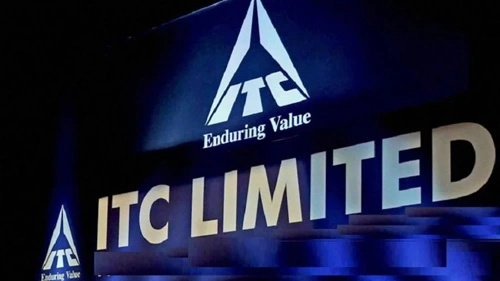The Indian multinational ITC Limited has its main office in Kolkata. ITC is widely present in various industries, including agribusiness, paperboards, FMCG, hotels, software, and packaging. Within 5 segments, the corporation operates 13 businesses. It exports goods to ninety nations. Six million retail locations carry its products.
ITC Company Origin Story
Originally called “Imperial Tobacco Company of India Limited,” “ITC Limited” was established on August 24, 1910, as a British-owned business registered in Kolkata, replacing Imperial Brands and W.D. & H.O. Wills. In 1912, the “Indian Leaf Tobacco Development Company Limited” was established in the Guntur district of Andhra Pradesh under the auspices of the corporation. The firm established its first cigarette plant in Bangalore in 1913. Next, a printing and packaging plant was established in 1949 at Chennai (then Madras).

ITC Company Details
| Company Name | ITC Limited |
| Origin Country | India |
| Founded | 1910 |
| Founder | Bipin Chandra Pal and others (as Imperial Tobacco Company of India Limited) |
| Chairman | Sanjiv Puri |
| CEO | Sanjiv Puri |
| Headquarters | Kolkata, West Bengal, India |
| Industry | Conglomerate (FMCG, Hotels, Agri-Business, Paperboards & Packaging, Information Technology) |
| Key Products | Cigarettes, FMCG Products, Hotels, Agri-Business, Paperboards & Packaging, Information Technology |
| Number of Employees | Over 25,000 (as of last update) |
| Revenue | INR 55,494 crore (FY 2020-21) |
| Official Website | www.itcportal.com |
ITC – Business Model
ITC is a worldwide corporation with diverse products aimed at various target audiences. It operates in multiple industries. ITC’s business strategy is to provide a wide selection of items to its target market, which benefits them somehow.
ITC sets the standard in several different industries, including FMCG, information technology, paperboards and specialty boards, hotels, packaging, and agribusiness.
ITC Ltd.’s business model is multifaceted and operates separately in various industries due to the company’s wide range of goods and services offered in different market segments. primarily serves all B2B and B2C markets. Innovative product development, R&D, CSR, and other activities are some of its main undertakings.
ITC Ltd. maintains a robust social media presence and is adept at maintaining interaction, engagement, and audience awareness with its most recent brand awareness tactics.
ITC has an extensive network for product delivery; there is no question about that. So much area would be needed to store, produce, and deliver such massive quantities. ITC has also taken good care of that. It ensures that its products arrive at the designated spot in the shortest amount of time feasible.
ITC expanded its operations and resource base into numerous industries during its early years. It assisted in building the brand presence that ITC used to enter the FMCG industry. Furthermore, ITC’s diverse business has resulted in lower outsourcing costs. Its enterprises’ interactions have aided in its development and self-establishment.
Revenue Streams for ITC
When the revenue streams are broken down, cigarettes account for roughly 77% of the total revenue generated. However, using paperboard and packing reduces the payment by around 7.3%. Regarding other products, their hotel sector brings in around 4.3%, FMCG products about 4.0%, and agribusiness about 7.0% of their overall revenue.
Several revenue streams are produced by ITC’s diverse portfolio, including:
- Sales of Products: The company’s goods, which include packaged foods, cigarettes, personal hygiene items, and branded clothing, bring in money.
- Services: The hotels division of ITC makes money by offering lodging, food and drink, and event management services.
- Agribusiness: The sale of agricultural products and associated services brings in money for ITC’s agriculture segment.
- Advertisements – As one of the most established and well-known companies in the economic world, ITC is adept at grabbing the public’s attention. Businesses under the ITC umbrella use various marketing techniques and campaigns to establish a genuine emotional bond with their target audience.
- Licensing fees: Businesses and companies with intellectual property rights (ITC) get royalties and licensing fees from using their valuable assets, such as trademarks, technology, brand names, and taglines.
Conclusion
This corporation has come a long way from its beginnings as a tobacco-producing enterprise to its current state as ITC Limited. Overcoming countless rivals, it has achieved many aspirations. Nevertheless, every business experiences ups and downs as part of its package. But given the amount of momentum ITC has generated, any competitor trying to overtake ITC in the market would have to work extremely hard.

Meet Suhas Harshe, a financial advisor committed to assisting people and businesses in confidently understanding and managing the complexities of the financial world. Suhas has shared his knowledge on various topics like business, investment strategies, optimizing taxes, and promoting financial well-being through articles in InvestmentDose.com


